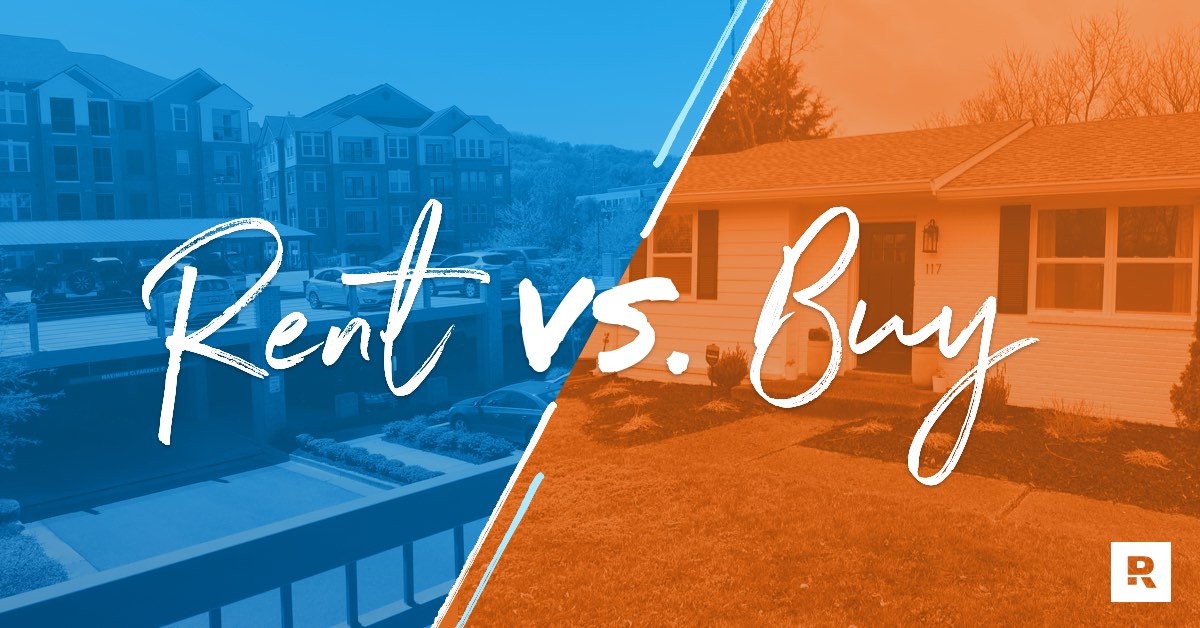Rent or buy a house in the Philippines:Whether it’s better to rent or buy a house in the Philippines depends on your personal circumstances, such as financial readiness, lifestyle preferences, long-term plans, and the specific housing market in your area of interest.

Rent or buy a house in the Philippines
| Aspect | Renting a House | Buying a House |
|---|---|---|
| Initial Cost | Lower initial upfront cost | Higher upfront cost (down payment) |
| Monthly Expenses | Fixed monthly rent payments | Mortgage payments and utility bills |
| Long-term Investment | No equity built | Builds equity over time through ownership |
| Maintenance | Landlord responsible | Homeowner responsible for maintenance |
| Flexibility | More flexibility to relocate | Less flexible, potential resale concerns |
| Property Modifications | Limited customization | Complete freedom to customize the property |
| Tax Implications | No property tax responsibility | Property tax obligations may apply |
| Appreciation | No potential for property appreciation | Potential for property value increase |
| Market Volatility | No exposure to market fluctuations | Property value may fluctuate with the market |
| Ownership Duration | Short-term commitment | Long-term investment |
Understanding the Philippines’ Real Estate Market
The Philippines’ real estate market exhibits a fascinating blend of both local and global influences. Economic factors, policy regulations, population growth, and urbanization all play significant roles in shaping the country’s property market.
Recent Trends
In recent years, the real estate market in the Philippines has experienced considerable growth. This expansion is largely due to the rising demand for residential properties, particularly in urban areas such as Manila, Cebu City, and Davao City.
One significant trend is the increasing interest in condominiums and apartments. This shift is fueled by the younger generation’s desire for modern, convenient, and accessible living spaces. As urbanization intensifies, city dwellers prioritize proximity to work, shopping centers, and entertainment venues, making condos and apartments an attractive choice.
The emergence of flexible working arrangements has also spurred the growth of the residential property market. More people are opting for homes that can accommodate home offices, causing a surge in the demand for larger living spaces.
Current Market Conditions
While the past years have seen considerable growth, the real estate market in the Philippines is not without challenges. Despite the robust demand for properties, external factors such as economic uncertainties and the impact of global events like the COVID-19 pandemic have created a more cautious investment climate.
Property prices have remained relatively stable, with a slight increase in some areas. However, the demand and supply balance has shifted, with more properties available in the market than buyers. This situation is creating a more competitive environment for sellers and developers.
Nevertheless, despite the challenges, the resilience of the Philippines’ real estate market continues to attract investors. The market is expected to bounce back, driven by the country’s strong economic fundamentals and the increasing demand for residential and commercial properties.
Benefits of Buying a House
Investing in real estate, specifically buying a house, has several advantages that could contribute to one’s financial stability and personal satisfaction. It could be a practical choice for those who are in a position to afford it and are ready for the responsibility.
Long-Term Investment and Appreciation
Buying a house in the Philippines can be a solid long-term investment due to the potential for property appreciation. Historically, housing prices have trended upwards over time, especially in rapidly developing areas. Therefore, purchasing a property not only provides a place to live but could also increase in value over the years, resulting in a profitable return if you decide to sell.
Stability and Control
Homeownership offers a sense of stability and control that renting does not. As a homeowner, you have the freedom to modify your property according to your personal taste and needs, enhancing your quality of life. This aspect is especially valuable in the Philippines, where family-oriented culture and personal touches to home design are highly valued.
Potential Rental Income
If you buy a property but do not plan to live in it immediately, you can generate income by renting it out. In high-demand areas such as Manila or Cebu, rental properties are in high demand, and a well-located property could provide a consistent income stream.
Case Study: Successful Home Ownership in the Philippines
Consider the story of Mr. Santos, a successful homeowner in Manila. He bought a house in the city two decades ago. Over the years, the value of his home has increased significantly due to urban development and property appreciation. During times when the house was not his primary residence, he rented it out, generating a steady rental income. Today, Mr. Santos enjoys the stability that homeownership offers and sees his decision to buy a house as a major factor in his financial security.
Drawbacks of Buying a House
Although buying a house has its perks, it also comes with some potential drawbacks. It is essential to consider these factors to make an informed decision about investing in the real estate market in the Philippines.
High Initial Cost
Purchasing a house requires a significant amount of money upfront. The initial cost often includes the down payment, closing costs, moving expenses, and potential renovation costs. In the Philippines, the down payment for a house can range from 10% to 30% of the property’s total price, which might be a substantial amount for many people.
Property Maintenance Responsibilities
Rent or buy a house in the Philippines,Owning a house comes with ongoing maintenance responsibilities. From regular upkeep to necessary repairs and unexpected issues like plumbing problems or roof leaks, these responsibilities can be time-consuming and costly. Unlike renters, homeowners cannot pass these costs onto a landlord or property manager.

Possible Market Instability
While property is typically a safe long-term investment, it’s not immune to market fluctuations. Economic conditions, interest rates, and even global crises like the COVID-19 pandemic can impact the real estate market, sometimes leading to decreased property values.
Case Study: Challenges Faced by Home Owners
Take Mrs. Dela Cruz’s experience as an example. She purchased a house in a developing part of Davao City. While she enjoyed being a homeowner, she found that the initial costs and ongoing maintenance of the property were higher than she had anticipated. Furthermore, an economic downturn caused the property’s value to depreciate temporarily, causing financial stress.
Benefits of Renting a House
Renting a house also presents certain advantages, particularly for those seeking flexibility or those who are not yet ready for the financial commitment of buying a house. Let’s explore some of these benefits.
Flexibility and Mobility
Renting a house allows for more flexibility compared to owning. If your job requires you to move frequently or if you’re someone who enjoys experiencing different neighborhoods, renting can be a great option. Lease agreements are usually for a set period, and once that ends, you have the freedom to move without the hassle of selling a property.
Lower Initial Cost
Compared to buying, renting a house usually requires a lower initial financial commitment. Typically, renters are required to provide a deposit and the first month’s rent upfront, which is significantly less than the down payment required to buy a house. This lower initial cost can be beneficial for those who do not have the savings to cover a down payment and other home buying costs.
Limited Maintenance Responsibilities
When renting a property, most of the maintenance responsibilities fall on the landlord or property manager. This arrangement can save renters a considerable amount of time and money that homeowners must invest in property maintenance.
Case Study: Successful Rental Experience in the Philippines
Consider Mr. Reyes, who moved to Manila for work. He chose to rent an apartment in the city center, close to his office. The flexibility of renting allowed him to adjust easily when his company moved offices, as he was able to relocate without any property-related complications. Mr. Reyes also appreciates that his landlord handles most of the maintenance responsibilities, giving him more time to focus on his career and enjoy city life.
Drawbacks of Renting a House
While renting a house can offer flexibility and lower upfront costs, it also has potential downsides. It’s important to consider these factors when deciding between renting or buying a house.
Lack of Control Over Property
Renters often have limited control over their living spaces. Landlords or property management companies generally establish rules about alterations to the property. This limitation means renters may not be able to paint walls, change fixtures, or make other modifications to the house that can make it feel more like home.
No Return on Investment
Unlike homeowners, renters do not gain any return on investment from the money they pay each month. Although buying a house requires a larger upfront investment, homeowners can potentially earn a return if the property appreciates over time. Renters, on the other hand, simply pay for the time they occupy the property without building any equity.
Potential Rent Increases
Rent can increase over time, especially in areas with high demand. While landlords in the Philippines are subject to rules and regulations about rent control, it’s possible for rent to increase when renewing a lease.
Case Study: Challenges Faced by Renters
Consider the example of Miss Garcia, a long-term renter in Cebu City. Over the years, she faced several rent increases that strained her budget. Additionally, she wanted to repaint her living room to make it more personalized, but her landlord did not allow modifications to the property. This lack of control and the increasing costs have made her consider the potential benefits of homeownership.
Factors to Consider when Choosing to Rent or Buy
Making the decision between buying or renting a house in the Philippines depends on several personal factors. Let’s delve into the key considerations that can help guide this important decision.

Personal Financial Situation
Your personal financial situation is one of the most critical factors in deciding whether to rent or buy. Buying a house requires a substantial upfront cost and ongoing expenses like maintenance, taxes, and homeowner’s insurance. If you are financially ready for this commitment, buying may be the right choice. On the other hand, if you don’t have enough savings for a down payment or if you prefer to avoid the additional expenses, renting could be a more financially prudent choice.
Lifestyle and Housing Needs
Your lifestyle and housing needs should also influence your decision. If you value flexibility and the ability to move easily, renting may be more suitable. But if you prefer stability and the freedom to personalize your living space, buying a house may align more with your lifestyle.
Future Plans and Stability
Your future plans can also guide your decision. If you plan to settle in one area for the foreseeable future, buying a house could be a good investment. But if you foresee significant life changes in the near future, like a job transfer or a growing family, renting may offer the flexibility you need.
Location-Specific Factors
Location-specific factors such as the housing market trends, cost of living, and rental prices in the area you’re interested in should also influence your decision. Some areas may have high rental prices but more affordable home prices, or vice versa.Rent or buy a house in the Philippines , Conducting research into these factors can help you make a more informed decision.